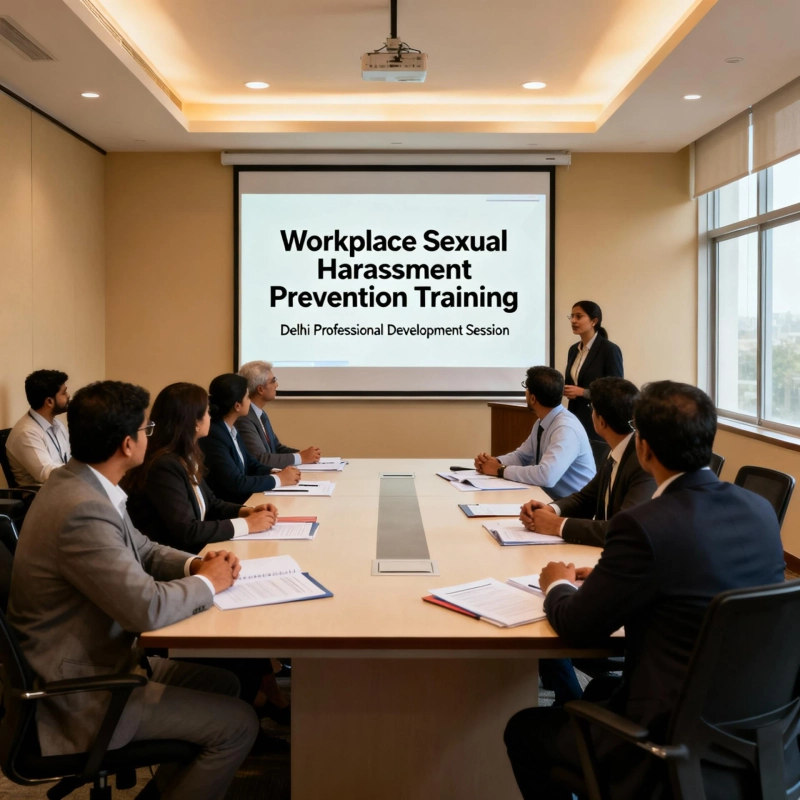Creating a workplace where every employee feels safe, respected, and valued is essential for both productivity and long-term growth. The Prevention of Sexual Harassment (POSH) Act, 2013, lays the foundation for ensuring dignity and equality in the workplace. With growing awareness and compliance requirements, organizations are increasingly adopting POSH Training in Delhi to foster a culture of respect and zero tolerance for harassment.
Understanding the need for POSH compliance
The POSH Act mandates that every organization with ten or more employees must have an Internal Committee (IC) and conduct regular training programs to educate employees about workplace rights and reporting mechanisms. However, compliance goes beyond ticking a legal checklist—it’s about creating a culture where everyone feels empowered to speak up and act responsibly.
Through sensitization and awareness sessions, employees learn to recognize inappropriate behavior, understand reporting procedures, and respect personal and professional boundaries. This proactive approach helps prevent incidents rather than merely responding to them.
Components of an effective POSH training program
An effective posh training program in delhi includes several key elements:
- Understanding the POSH Act: Explaining the legal framework, employee rights, and employer responsibilities.
- Identifying harassment: Real-life examples and scenarios illustrating verbal, physical, and non-verbal forms of misconduct.
- Reporting mechanisms: Educating employees on how and where to file complaints confidentially.
- Role of the Internal Committee: Training IC members on investigation procedures, documentation, and fair judgment.
- Preventive culture: Encouraging mutual respect, communication, and inclusivity.
Such structured sessions ensure participants don’t just learn the law but also apply its principles in their everyday interactions.
Benefits of POSH training for organizations
- Legal compliance: Regular training safeguards companies from penalties and legal risks.
- Positive culture: Promotes trust and transparency across all levels of management.
- Employee confidence: Staff members feel secure knowing that fair systems exist for redressal.
- Reputation building: Ethical organizations naturally attract top talent and client trust.
- Leadership accountability: Empowers leaders to model the right behavior and handle sensitive issues responsibly.
When employees understand both their rights and duties, workplaces transform into safer, more inclusive environments.
Choosing the right POSH training provider
Not all training programs are created equal. The most effective sessions are delivered by legal experts, certified trainers, or HR professionals with practical experience handling POSH cases. An ideal training partner should:
- Customize modules to suit your industry and employee demographics.
- Provide engaging, scenario-based learning experiences.
- Offer separate sessions for employees, management, and IC members.
- Conduct pre- and post-training assessments to measure impact.
By choosing a reputable provider, organizations ensure their compliance efforts are both impactful and sustainable.
Common challenges in POSH implementation
Even with the best intentions, companies often face challenges such as:
- Lack of awareness about the POSH Act’s requirements.
- Reluctance among employees to report incidents due to fear of stigma.
- Insufficient IC training on conducting fair investigations.
- Treating POSH compliance as a one-time activity rather than a continuous process.
Addressing these challenges requires consistent communication, leadership involvement, and reinforcement through regular workshops.
Creating a long-term impact
POSH training isn’t just about following the law—it’s about changing attitudes. When conducted regularly and supported by management, these programs lead to:
- Stronger team relationships based on mutual respect.
- Reduced workplace conflicts.
- Enhanced productivity through a sense of safety and belonging.
- Greater employee loyalty and morale.
By making gender sensitivity and respect part of workplace culture, organizations create an environment where professionalism thrives.
Final Thoughts
POSH training isn’t merely a regulatory requirement—it’s a commitment to creating respectful and equitable workplaces. Regular, well-structured training builds awareness, strengthens culture, and ensures organizations meet both ethical and legal responsibilities. For expert-led, legally compliant POSH sessions that make a real impact, businesses across India trust LEXLEVEL to deliver effective and empathetic workplace training solutions.
Frequently Asked Questions
Q1. Who should attend POSH training sessions?
All employees, including permanent staff, interns, consultants, and contract workers, must participate in POSH sensitization sessions.
Q2. How often should POSH training be conducted?
Ideally, organizations should conduct training at least once a year and whenever new employees or IC members join.
Q3. What are the consequences of non-compliance with the POSH Act?
Non-compliance can lead to financial penalties, reputational harm, and even cancellation of business licenses.
Q4. Can POSH training be customized for different industries?
Yes, experienced trainers tailor sessions based on organizational needs, employee size, and work environments.



